Jessica Graustein Earns Associate Ecologist Certification
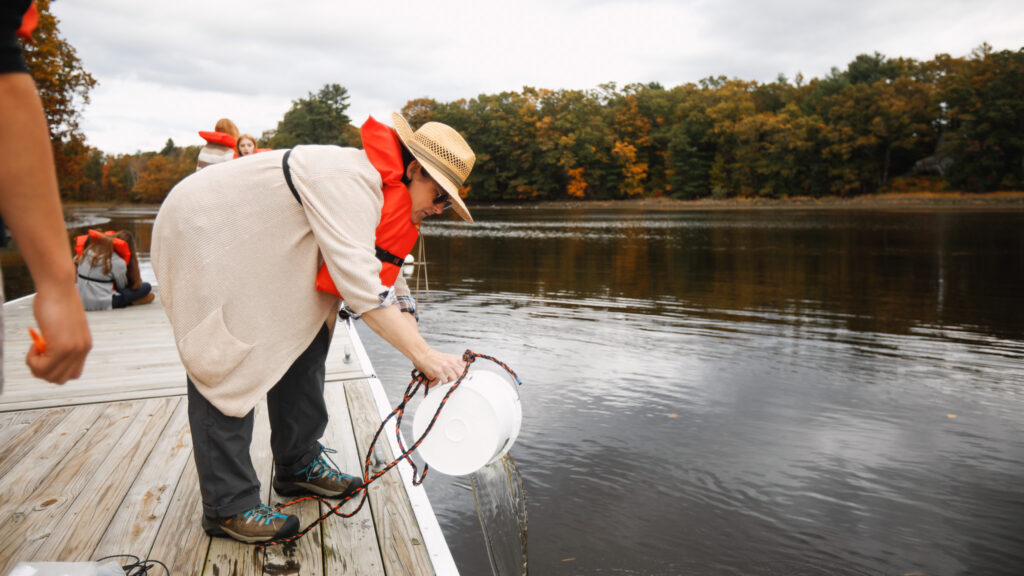
PCA’s mission of maximizing God-given potential isn’t only reserved for our students. Professional development at PCA is a key part of our teachers executing our mission in and outside the classrooms. We’re excited and proud to share that our Upper School Science Department Head, Jessica Graustein, has met the necessary requirements for certification as an Associate Ecologist from the Ecological Society of America (ESA).
Certification through ESA is a way for ecologists at all levels of education and training to add a credential to their resume, demonstrate their expertise, and exhibit their skills to employers, clients, or colleagues.
Mrs. Graustein, or “Mrs. G” as her students affectionately call her, began her career as Head Teaching Assistant at Northern Illinois University, then served as an Adjunct Professor at Notre Dame de Namur University in Belmont, California. Her science curriculum at PCA emphasizes field explorations, microscopy, homeostasis, stewardship, scientific literature (both technical and creative), and the etymology of scientific terms. Her specialty topics include aquatic ecology, plant competition, and bioethics. She also harnesses the power of new-media to enhance student engagement by creating audio-visual content for a wide range of asynchronous and learning-style needs. In her ecological certification, Jessi is also a specialist in invasive species and pest management.
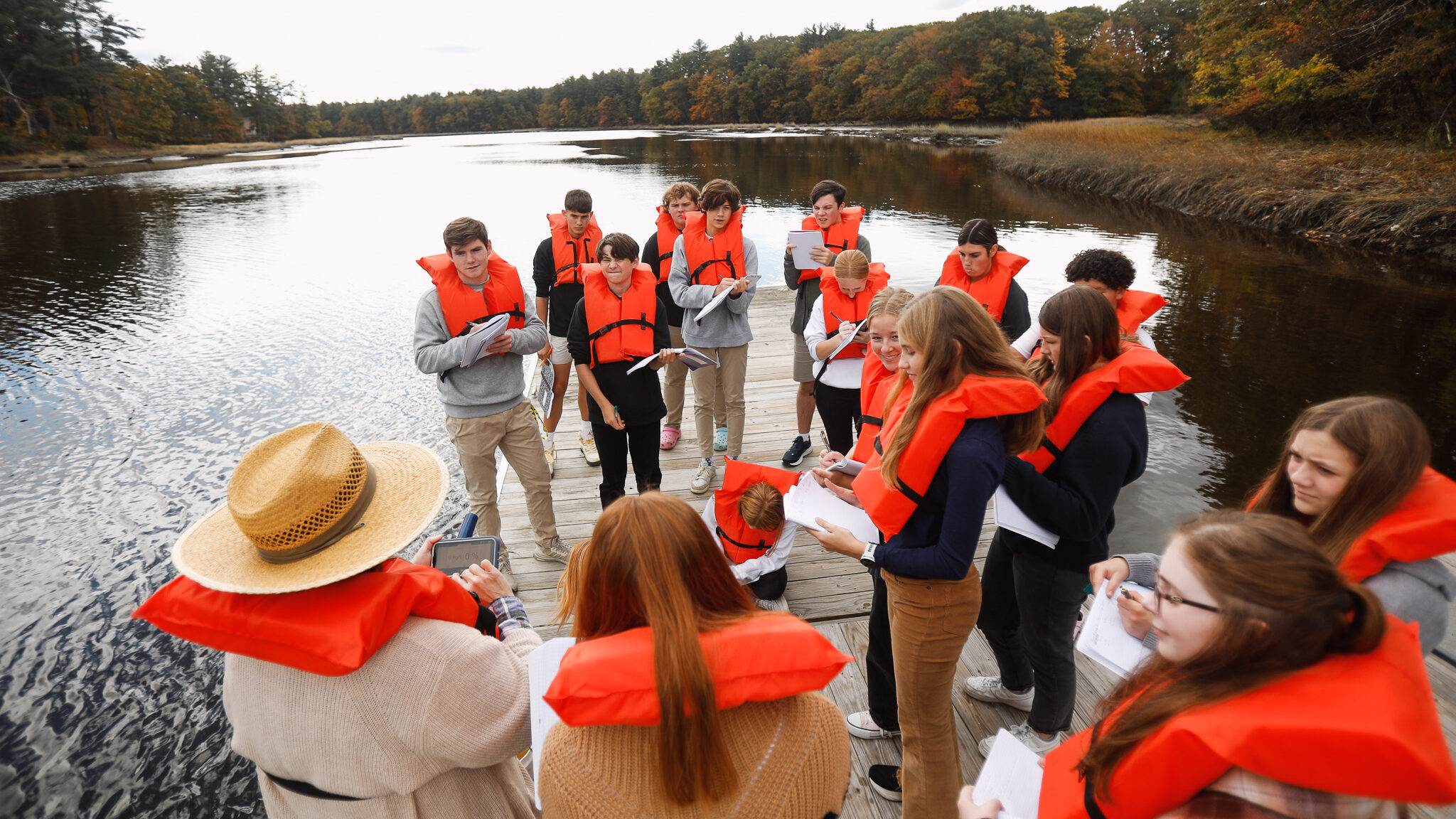
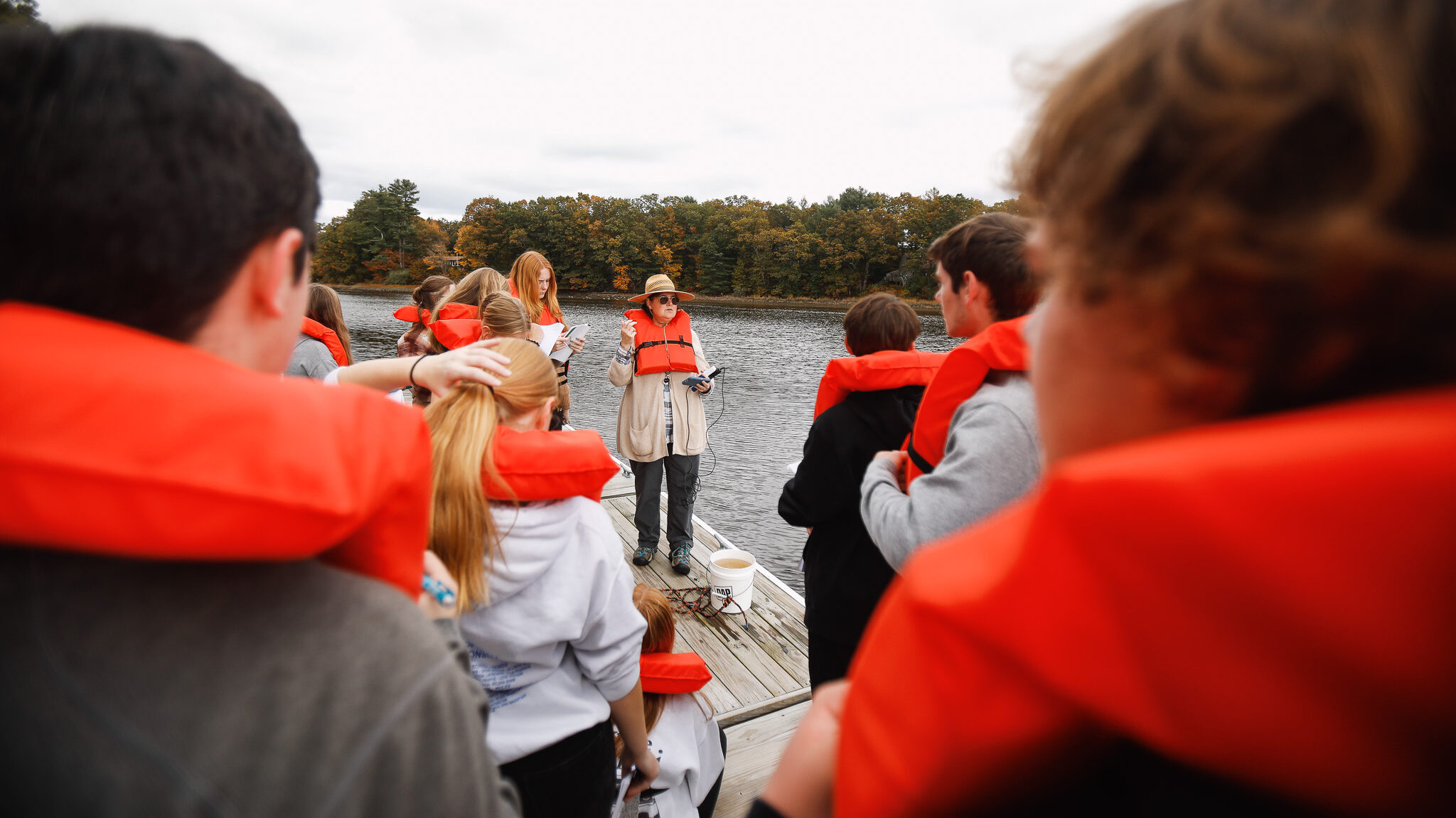
Jessi’s care and concern for the world around her began at an early age. “The first prayer I remember praying was for a butterfly I found caught in the springs of my bunk bed when I was 7,” she says. “I lifted the mattress and it dropped onto my picture book. I carried it outside, prayed for it, and after a minute it was able to fly away. So from very early on I connected creation with The Creator. I was also lucky to grow up in rural places that allowed me to immerse myself in the natural world and see His hand at work.”
Jessi’s hands-on approach to teaching science is one of the things that makes her such a great educator here at PCA. Her creative teaching approach, coupled with our 60-acre campus of woodlands and waterfront, makes for engaged classroom learning where students are able to learn the classroom material in a variety of different ways. One of her projects she lights up to share about is the Global Ocean Biogeochemistry Array float, collecting scientific data on biogeochemical cycles, carbon uptake, acidification, deoxygenation, and ecosystem health in the Arctic Ocean.
This network of floats collects data on the chemistry and the biology of the ocean from the surface to a depth of 2,000 meters. Data streaming from the float array is available within a day of being collected via an online data system that Jessi and her classes can access at any time. Jessi can use this data to have discussions about with her class about a variety of environmental factors at play in our world, including the effects of ocean warming and ocean acidification on sea life. Jessi can then help students look at these issues in the biblical light of the Creation Mandate, found in the book of Genesis.
In another outside-the-box class idea, check out this video, taken during COVID, when Mrs. Graustein brought her Botany and Zoology out to place their Owl Box in the woodlands out near the river.
“When I first applied to PCA, I had just started looking to get back into teaching when I found out about the Life Science position from Lois Blatchley. Plus, my in-laws used to work for ACSI, so I had heard about the school for years. But it wasn’t until I saw the extensive woods and waterfront on campus that I knew it was where I wanted to be. I try to get my students out into natural spaces as often as I can, asking them to use words, pictures, and numbers in their Creation Journal entries. I also use playlists in most of my classes which allows students some choice in how they engage with concepts. I use adapted scientific literature to show students what science-in-action looks like, as well as (for dual enrollment students) to train them how to read peer-reviewed scientific journals.”
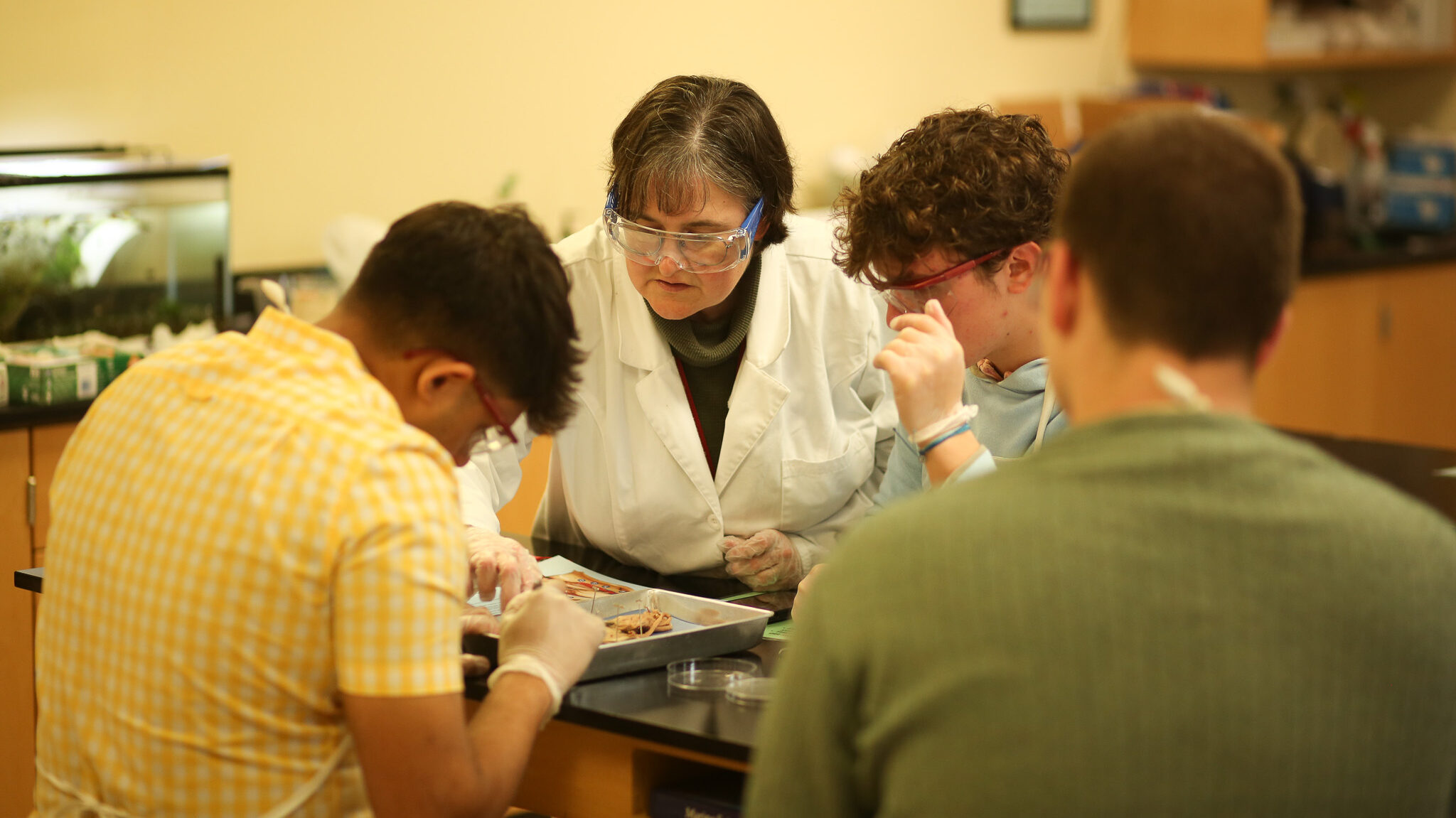
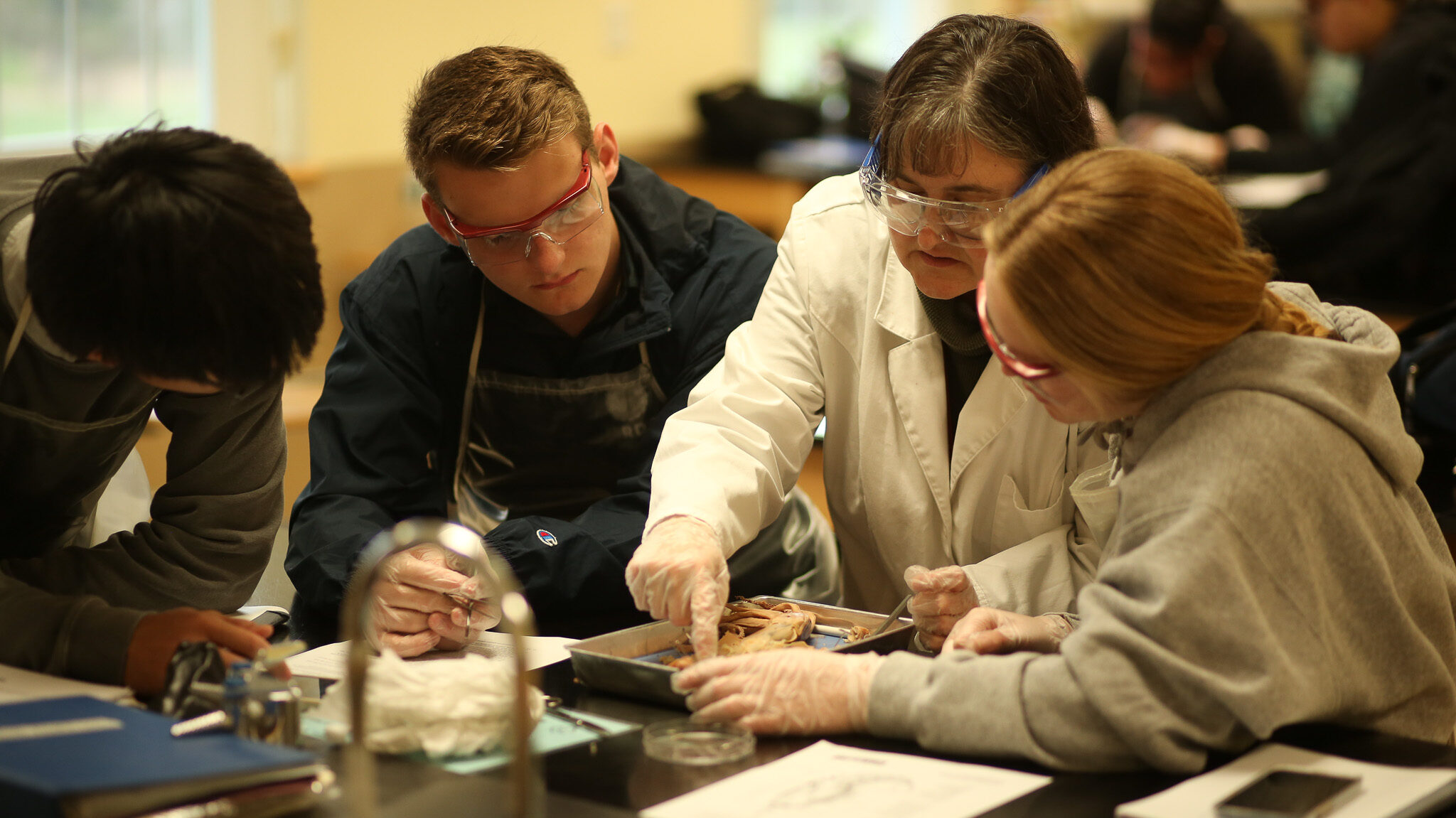
“The certification will come in handy when interacting with various state and local environmental agencies and NGO’s, especially now that the EPA is keeping such a close eye on the Great Bay (which the PCA watershed flows into),” says Graustein.
“To get certified, I needed my graduate school course work coupled with at least 1 year of current ecological work. Fortunately, ESA now has an Education section, so they understand that teaching the next generation to understand the interactions between organisms and their environment is necessary ecological work. Certification is a public declaration that I am a practicing ecologist, contributing to the conservation of the ecosystem services we all depend on.”
At the heart of Jessi’s role at PCA is her desire to share her love for creation, and its Creator, with her students. Though not every student at PCA will become a scientist or marine biologist, “Mrs. G” wants every student to walk away with an appreciation for the complexity and intentionality with which every organism was designed.
“My primary goal is for all my students to view biology as a way to understand themselves and to get a peek behind the curtain of how God designed everything to work together. I also hope that students see how being good stewards of creation can be an act of worship.”


